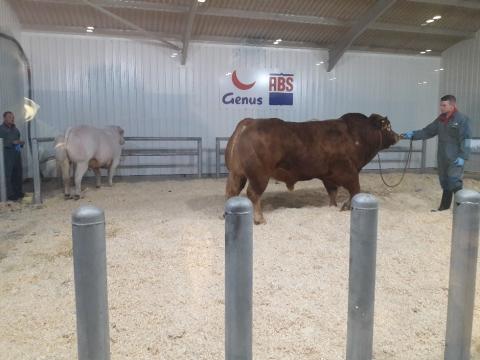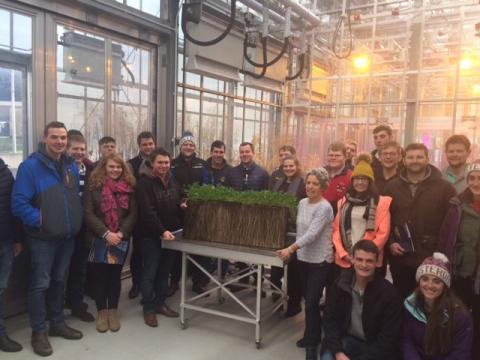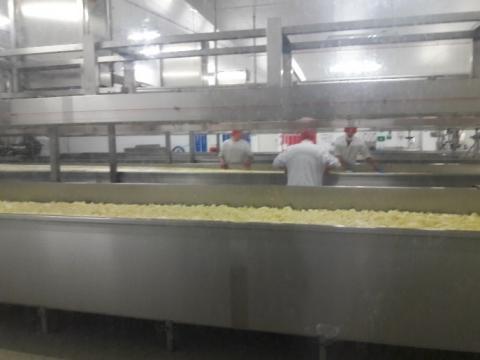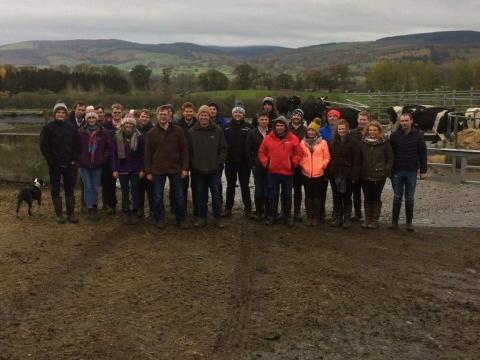Farming Connect Study Visit-Pembrokeshire YFC Rural Affairs Committee
Funded through the Knowledge Transfer, Innovation and Advisory Service programme under the Welsh Government Rural Communities – Rural Development Programme 2014 - 2020
Pembrokeshire YFC Rural Affairs Committee
North Wales
1st - 3rd November 2018
1) Background
The Pembrokeshire YFC Rural Affairs committee is set up as a subcommittee in the county federation for young farmers to part take in study tours, visits and guest speakers all in relation to agriculture and rural affairs. It helps keep the education in farming side of the YFC going when there is such diverse activities and competitions now available in the YFC.
The rural affairs group as an annual away study tour as well as evening, day visits and guest speakers throughout the rest of the year
Aims of the trip:
The aims of the visits are to look into different aspects of farm business for example from the grassland side which is of great interest to many of the Pembrokeshire farmers, to diversification opportunity, to the genetics side of the business up with genus in Ruthin. Also to gain knowledge on the supply chain and a processor including what their main drivers will be in the future. This trip should give a rounded and holistic approach to enabling all of the members to take something interesting away and improve their business. We will also be looking at a large scale dairy herd in a share farming agreement, and also spring calving – a system used by many farmers on the trip.
2) Itinerary
First Day:
IBERS tour at Plas Gogerddan which included an overview of IBERS activity then a visit to the National Plant Phenomics Centre with Dr Fiona Corke.
We then went on to visit South Caernarfon creameries and cheese factory where we had a tour of the factory.
Second day:
Visit to the Ruthin bull genus bull stud looking at the running of the stud and current genetics. We also had a chance to view certain bulls, the semen collection and the new semen sexing technology.
During the afternoon we visited Rhug Estate where we had an overview of the business and how it has developed. This included looking into the marketing of their meat and the diversification side of the business before having a tour of the estate.
Third Day:
During our journey home we visited Rhiwlas Estate where we had a chance to speak to the farmer, Sam, who had gone into a share farming agreement with the estate owner. We had an insight into how he found himself share farming, the knock backs he experienced along the way and the most inspiring moments too. We had a tour of the farm and he was completely open in terms of the running of the business and financials.
3) Next Steps
The knowledge gained has been built on and used in different ways by all members present on the trip. There were two members who had never used AI before and, having learnt about genus and potential genetic merit gain, are now looking into using AI. Many members were not informed on the different ways semen can be sexed and the different levels of viability depending on how the sperm were sorted. All members said that the information gained will benefit them with some saying that they might try sexed semed again knowing that there could be straws with better viability than what they have tried before, thus helping improve their business model and lead to less wastage.
IBERS was a great trip where we looked at grass and clover research. Many members said they felt they would be more informed next time they looked to reseed as they now know more about the different varieties. Members thought it was particularly interesting looking into hybrids and it was explained that hybrids could be 95% of one type and only 5% of another which isn’t always mentioned when they are marketed. It was advised that they should always clarify the breeding of a variety to be completely sure on what they were buying and that the % mix of grasses in the hybrid is what is desired on the farm. Different ways to diversify were also discussed at the IBERS biorefinery, for example growing daffodils for medicine and that there is a service for farmers where they can get in touch if they want to look into something on the bio-refinery side. At IBERS they also explained the distance learning programmes available which have for one inspired me and a few other members too.
At South Caernarfon Creameries we learnt all about the producer group, business set up and milk contracts, which was particularly handy to compare against first milk. We also learnt about the feeding and genetic factors in producing milk and what the milk buyers
and consumers are looking for, both now and in the future. The manager there also gave us a bit of a forecast on the milk price which is always handy for members to take into consideration.
The Rhug Estate was great to go and see. This visit gave members the chance to learn how to go about diversifying, branding and the profitability of different businesses. Members learnt the importance of marketing their products with premium and a story which was particularly helpful for one attendee who is looking into selling milk directly from the farm.
Going to the Rhiwlas Estate was incredibly interesting as Sam explained to us his story and everything that he had done to get to this point in his farming career. He spoke all about the business and the share farming agreement including the pros and cons. He also mentioned a Nuffield report which had inspired him and helped him in all of his decisions and how he runs the farm. Several members have begun reading this Nuffield report which outlines everything dairying, from the business itself to working it alongside life enabling a good work life balance – an issue effecting all dairy farmers and young people in the industry.
We will be presenting main findings in the next meeting which will mean all members of the committee will benefit, even the ones unable to attend this time.
Overall, this was an educational and inspirational trip with many attendees taking a lot of the knowledge gained back to their own businesses. As an agricultural lecturer, I have already discussed the visit and knowledge gained with my students and will look into taking them on a similar visit in the future. I was particular inspired by the share farmer and would like to either arrange another trip there with my students or invite him to talk with them as a guest speaker.




